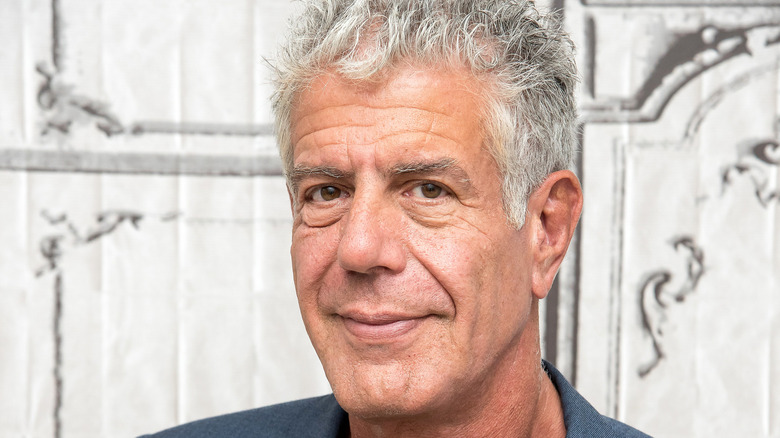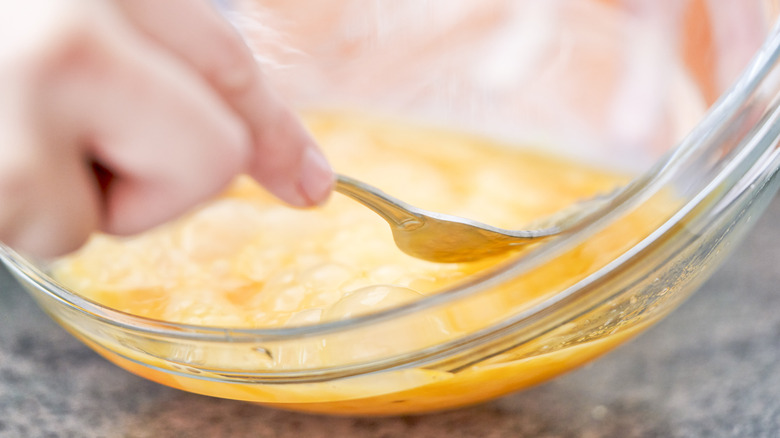Anthony Bourdain Warned Against This One Mistake That Can Ruin Scrambled Eggs Before They Even Hit The Pan
Anthony Bourdain didn't mind a good kitchen shortcut, but he drew the line at lazy habits that stole flavor or pleasure from the plate. If you've ever been served what he described as "odd, graying, stippled" eggs at a greasy spoon, you've experienced the problem. According to him, those pallid diner eggs are the result of the number one mistake cooks make when preparing eggs.
Bourdain's secret to great scrambled eggs starts before the pan even gets hot. Use the freshest eggs you can get, he insisted, but just as crucial: Never crack or beat your eggs ahead of time. Otherwise, what should be rich yellow curds will cook up bland and mottled, the kind of breakfast you push around your plate without finishing.
It's a rule that sounds simple, but it's easy to break, especially if you're cooking for a crowd or trying to speed up a busy brunch. Many short-order diners and mass-production kitchens batch eggs in advance, thinking it will save precious minutes during the rush. But Bourdain saw this as a false economy; what you gain in speed, you lose in color, flavor, and texture. When eggs are mixed and left to sit, the result is always the same: Anemic, rubbery eggs that taste tired before they even hit the plate. The move might make sense on a diner line, but at home, Bourdain would call it an avoidable mistake that turns a perfect breakfast into a forgettable one.
Scrambled egg chemistry
So why does timing make such a dramatic difference in scrambled eggs? The answer is part egg chemistry, part common sense. When you beat eggs, you're combining the proteins and introducing air, both of which affect the texture and color. Let that mixture sit for too long, and the proteins begin to unravel; air escapes, and the yolks oxidize, leading to a loss of both color and flavor. The naturally occurring enzymes in eggs, called proteases, begin to break down the structure, making the mixture more watery and less stable.
When you cook eggs, heat causes the proteins to denature and then coagulate, or bond together, creating the solid texture of scrambled eggs. But if the eggs sat before you add heat, the proteins are not in their original state. They will coagulate differently, often less uniformly, and be prone to weeping, toughening, and developing that sallow tone Bourdain couldn't stand.
The fix is simple: Wait until your pan is ready, then crack and beat your eggs at the last possible moment before pouring them in. This way, the proteins and air stay where you want them, creating tender curds and a bright, appetizing color. Many chefs agree that last-minute mixing is the real secret to perfect eggs, but Bourdain brought the lesson home with his trademark know-how. Next time you make scrambled eggs, skip the shortcuts and trust Bourdain to enjoy the difference it makes.

